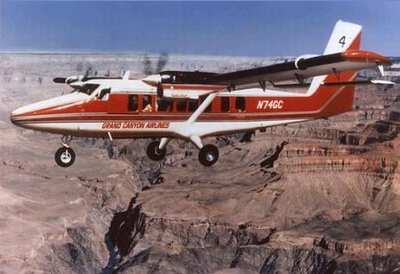NATA Pleased With New Aviation Legislation
National Air Transportation Association (NATA) president James
K. Coyne praised the House of Representatives for approving
historic legislation authorizing aviation programs. The legislation
is the first Federal Aviation Administration reauthorization
legislation of the 21st century and includes a number of provisions
that will support America's aviation businesses in the
future.
 H.R.
2115 Approved, 418-8
H.R.
2115 Approved, 418-8
On Wednesday, the U.S. House of Representatives approved H.R.
2115, the "Flight 100-Century of Aviation Reauthorization Act"
(CARA), sponsored by U.S. Reps. Don Young (R-AK), Chairman of the
House Committee on Transportation and Infrastructure; James
Oberstar (D-MN), Ranking Minority Member of the House Committee on
Transportation & Infrastructure; John Mica (R-FL), Chairman of
the House Subcommittee on Aviation, and Peter DeFazio (D-OR),
Ranking Minority Member of the House Subcommittee on Aviation. The
measure was approved by a vote of 418-8.
"While the previous legislation, AIR-21, was historic, this bill
is just as significant in terms of its importance to the aviation
community. This is especially true for those businesses that form
the backbone of our industry," Coyne stated. "This bill can
jumpstart our industry to more prosperous times and help ease the
turbulent period this country has endured in recent months."
Happy there's mo' spending:
 Overall funding levels for the Airport Improvement
Program (AIP) rise from $3.4 billion in FY 2004 to $4.0 billion in
FY 2007. "While security issues have dominated policy makers for
the last 20 months, we are quite pleased to see that FAA funding
levels continue to increase to meet future demands on our national
air transportation system."
Overall funding levels for the Airport Improvement
Program (AIP) rise from $3.4 billion in FY 2004 to $4.0 billion in
FY 2007. "While security issues have dominated policy makers for
the last 20 months, we are quite pleased to see that FAA funding
levels continue to increase to meet future demands on our national
air transportation system."
Coyne also praised the House for including a provision designed
to provide financial aid to America's general aviation businesses.
Many businesses serving the general aviation industry continue to
suffer economically because of federal mandates imposed on them
since the September 11th terrorist attacks. "I profoundly commend
the House aviation leadership for insisting upon fairness and
responsibility by including a framework for general aviation
businesses to obtain financial assistance. This legislation
will help these businesses by minimizing the impact of the
continuing restrictions imposed on them by the federal government."
Coyne stated.
Pearce Amendment Passed.
 In addition to general aviation relief, the House
bill includes a provision designed to enhance small-community
access to the national air transportation system. Under the
measure, locations that cannot support scheduled service would be
served by smaller, non-scheduled commercial air carriers.
This provision, offered by Congressman Steve Pearce (R-NM), allows
non-scheduled commercial air carriers to negotiate with passengers
the flight times and destinations desired on a per-seat basis
rather than forcing them to "buy" the entire airplane.
Additionally, the Pearce Amendment restricts such carriers to using
only turbine-powered or multi-engine piston-powered aircraft with
10 passenger seats or fewer.
In addition to general aviation relief, the House
bill includes a provision designed to enhance small-community
access to the national air transportation system. Under the
measure, locations that cannot support scheduled service would be
served by smaller, non-scheduled commercial air carriers.
This provision, offered by Congressman Steve Pearce (R-NM), allows
non-scheduled commercial air carriers to negotiate with passengers
the flight times and destinations desired on a per-seat basis
rather than forcing them to "buy" the entire airplane.
Additionally, the Pearce Amendment restricts such carriers to using
only turbine-powered or multi-engine piston-powered aircraft with
10 passenger seats or fewer.
"We are quite pleased that this important provision is part of
the bill," Coyne said. "It is clear that the government's
Essential Air Service (EAS) cannot subsidize the costs incurred by
air carriers in providing scheduled service to all of these smaller
communities. These communities, by themselves, cannot
generate the traffic necessary to justify the airlines'
expense. The Pearce Amendment eases the financial strain on
both the scheduled carriers and the federal government while
allowing much-needed flexibility."
The bill also includes a number of other NATA-sponsored or
-endorsed initiatives, including:

- Encouraging the re-opening of Ronald Reagan Washington National
Airport to general aviation operations;
- Requiring the FAA to report to Congress on why the Washington
Air Defense Identification Zone (ADIZ) exists within 30 days and
every 60 days thereafter;
- Providing pilots the ability to appeal the revocation of their
certificates for security concerns;
- Responding to Chicago Mayor Richard Daley's unilateral closure
of Meigs Field, the bill imposes a "civil penalty of $10,000 for
each day that the airport remains closed without having given" the
required notification;
- Creating a much-needed small business ombudsman within the
FAA;
- Prohibiting air tour flights from evening to dawn over certain
locations of the Grand Canyon;
- Improving regulations requiring aircraft manufacturers to make
maintenance manuals available to repair stations;
- Streamlining airport projects;
- Updating of standards for aircraft maintenance technicians;
and
- Expanding to 50 years the minimum term required for hangar
leases.
"The association truly appreciates the dedication and hard work
of the House aviation leadership and the key staff members who have
made this landmark legislation a reality," Coyne concluded.
"We look forward to working with both the House and Senate as this
bill continues through the legislative process."
 Aero-FAQ: Dave Juwel's Aviation Marketing Stories -- ITBOA BNITBOB
Aero-FAQ: Dave Juwel's Aviation Marketing Stories -- ITBOA BNITBOB NTSB Prelim: Rutan Long-EZ
NTSB Prelim: Rutan Long-EZ ANN's Daily Aero-Term (12.05.25): Hazardous Weather Information
ANN's Daily Aero-Term (12.05.25): Hazardous Weather Information Aero-News: Quote of the Day (12.05.25)
Aero-News: Quote of the Day (12.05.25) Airborne-Flight Training 12.04.25: Ldg Fee Danger, Av Mental Health, PC-7 MKX
Airborne-Flight Training 12.04.25: Ldg Fee Danger, Av Mental Health, PC-7 MKX






